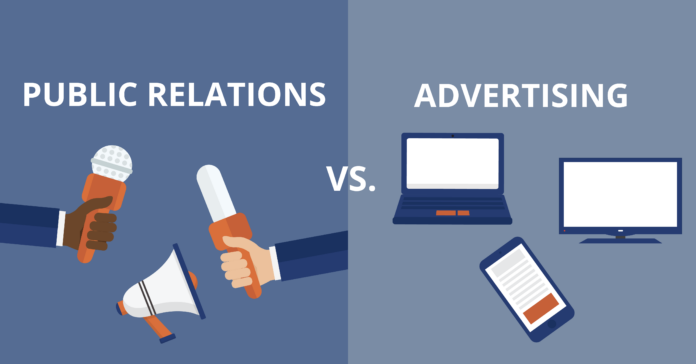Have you found yourself wondering how to get customers for your digital coaching business? Which is better: digital advertising or digital PR services? There are many factors to consider when choosing what avenue might be best, including cost and whether or not you want to spend less time marketing your business. This guide will go through the primary differences between public relations and advertising to make an informed decision.
What are the differences between public relations and advertising?
Public relations focuses on the image of a company, its products, and the people who represent the company. Public relations deals with customers, employees, and the community.
Advertising deals with promoting a product or service through a paid message in a publication, online, or on television. Public relations deals with customers, employees, and the community.
Why should you choose public relations?
Public relations is a diverse field that offers the opportunity to work in many different industries. Public relations professionals are in charge of managing relationships with clients, journalists, employees, stakeholders, and more. If you want to be in the center of business, politics, sports, or any other field, public relations is an option for you. Creating and executing corporate public relations campaigns requires expertise in diverse areas. Many companies invest heavily in PR as it helps to promote a company’s brand, image, and name to an audience. Effective public relations can also help to mitigate an adverse incident and save company resources. You should choose public relations as it is a great way to showcase your talents and skills.
The skills required for public relations, especially in brand and product management, are similar to those required of advertising professionals. It is common for PR professionals to work with marketing, communications, and advertising departments in their companies. Many clients hire a public relations firm to create or manage an ad campaign. Companies need to employ the right kind of public relations strategy in order to promote their products and services effectively. A public relations firm can assist in these areas:
-Defining target audiences.
-Identifying issues and objectives.
-Distinguishing between causes and effects.
-Developing objectives and priorities.
-Developing messages and concepts.
-Planning media coverage.
-Planning social media.
-Defining press release strategy.
-Analyzing media coverage.
-Evaluating tactics and results.
This career path provides entry into the professional fields of sales, marketing, management, and more. According to the Bureau of Labor Statistics, there will be a 20% increase in job opportunities for public relations and advertising professionals. Most graduates of this field become the media directors, brand managers, and press secretaries in their companies. There is even a growing trend to hire people with this degree as the head of public relations agencies. A public relations major has all the same departments, but it will also give you a more international and critical understanding of many different issues. In addition to working for a company in public relations, some are also pursuing further education. To work with agencies and own one, these graduates may need to earn a Master of Arts degree from the school of journalism.
When to choose Advertising over PR?
Advertising and PR are both marketing strategies, but what is the difference between them? PR is an attempt to grow goodwill for a company and establish a positive reputation. Advertising is an attempt to convince customers to buy a product or service. The difference between PR and advertising can be summed up as such: PR is an attempt to grow goodwill for a company and establish a positive reputation; advertising is an attempt to convince customers to buy a product or service.
Advertising may look more attractive than public relations if you are aiming to launch a company, but the skills in PR that are important for success in a career are no less valuable. In fact, many business people who work in advertising also work in PR, as both are similar. The skills gained in one are typically transferable to the other. Advertising has a larger audience and more visibility, but PR can be equally effective and often is more effective because of the goodwill it builds. Advertising can be expensive, whereas PR is usually more cost-effective.
I hope this article cleared your doubts about PR and Advertising, so choose wisely next time!




